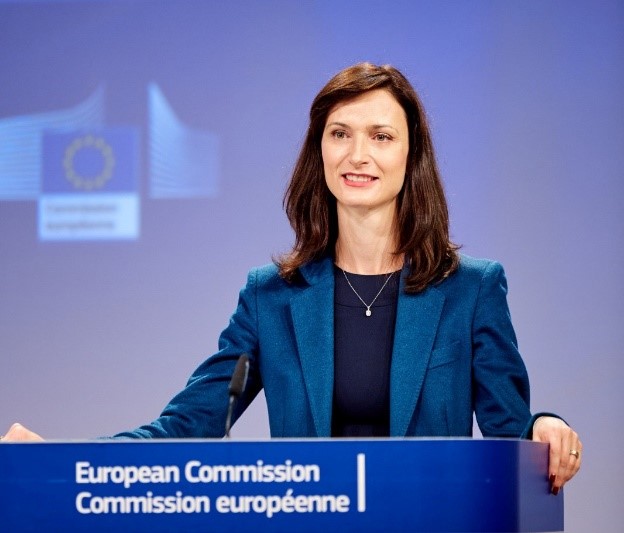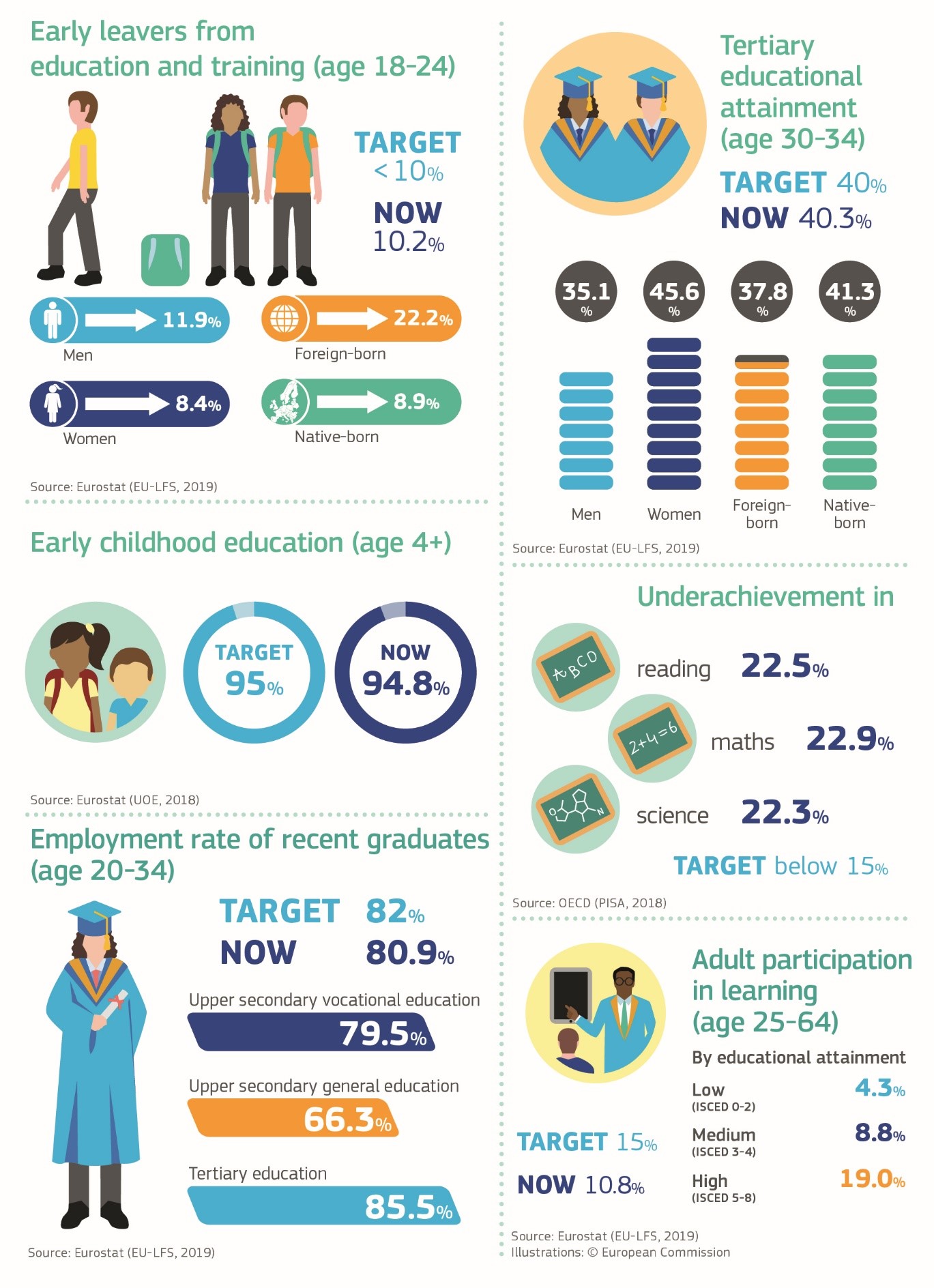
Education and Training Monitor 2020
Foreword

2020 has been a challenging year, for Europe and for the world. The COVID-19 pandemic has exposed more than 100 million Europeans, who are part of the education and training community, to new realities, new ways of communicating, learning and teaching. During this difficult period, education institutions and teachers demonstrated their dedication to learners’ wellbeing and continued learning, as well as their enormous capacity for flexibility, creativity and innovation. At the same time, however, the crisis shone a spotlight on existing weaknesses in our education systems. Socio-economic background is still the most important determinant of educational outcomes in the EU, and the crisis is likely to have the most detrimental effect on those learners who were already in a disadvantaged position before it started.
Our task now is to prevent the crisis from becoming a long-term structural barrier for our younger generations’ future. As we look back on the past decade, we see both successes and enduring challenges. On the one hand, more and more children participate in education from an earlier age and for longer. More young people than ever in Europe obtain higher education qualifications. However, basic skills have not improved in the last ten years, and we must now focus on the challenge of giving all citizens, of all ages, the chance to improve their key competences, namely reading, maths and science, and digital competence – which is more important than ever.
Indeed, the lead theme of this year’s Monitor, teaching and learning in a digital age, was planned well before the pandemic struck, but it could not have been timelier. 95% of respondents to the public consultation on the Digital Education Action Plan see the crisis as a game changer for the way technology is used in education and training. Yet the Monitor shows us that, despite Member States’ investments in digital infrastructure in recent years, large disparities between and within countries persist. Moreover, both learners’ and teachers’ digital skills need significant improvement in order to be fully fit for the digital age. It is time we abandon the common myth of the young generation of today as a generation of ‘digital natives’, and focus on improving basic digital skills as an essential prerequisite for education, work and life.
In order to face these challenges, the Commission recently proposed a package of initiatives that will strengthen the contribution of education and training to the EU’s recovery from the coronavirus crisis, and help build a green and digital Europe. The European Education Area, the Digital Education Action Plan and the Skills Agenda will bring more investment and stronger cooperation between Member States to help all Europeans, of all ages, benefit from the EU’s rich education and training offer. We will work with governments, experts and international partners to achieve our vision for the European Education Area, and in this endeavour we will continue to support policy-making at national and European level with trustworthy, comparable and insightful evidence, as presented in this year’s Education and Training Monitor.
Mariya Gabriel
Commissioner for Innovation, Research, Culture, Education and Youth
EU targets for 2020 in education

